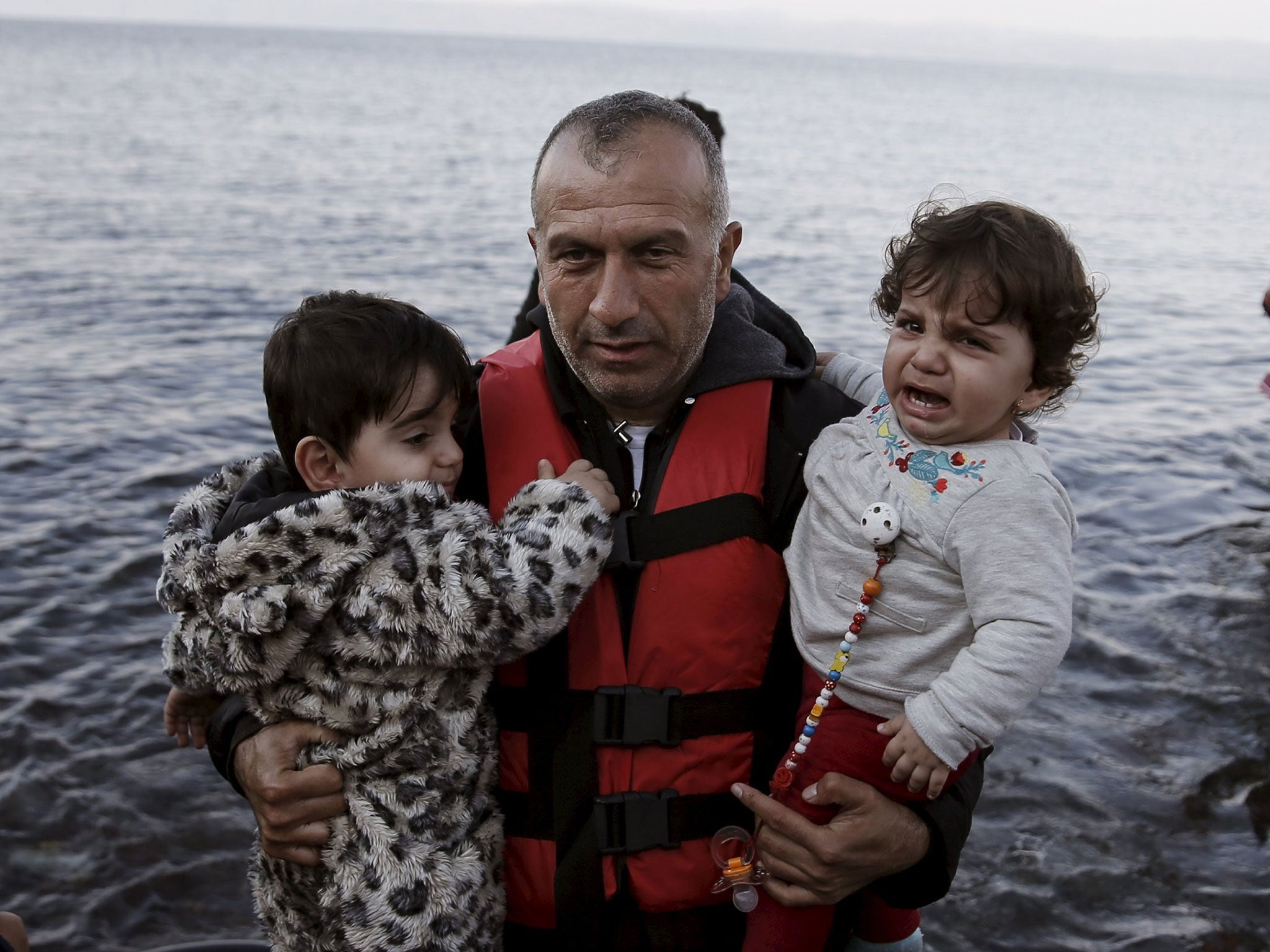Refugee crisis: UK to receive 1,000 Syrians by Christmas - but is it enough?
The first charter flight bringing refugees from Syrian border camps will arrive next week

Your support helps us to tell the story
From reproductive rights to climate change to Big Tech, The Independent is on the ground when the story is developing. Whether it's investigating the financials of Elon Musk's pro-Trump PAC or producing our latest documentary, 'The A Word', which shines a light on the American women fighting for reproductive rights, we know how important it is to parse out the facts from the messaging.
At such a critical moment in US history, we need reporters on the ground. Your donation allows us to keep sending journalists to speak to both sides of the story.
The Independent is trusted by Americans across the entire political spectrum. And unlike many other quality news outlets, we choose not to lock Americans out of our reporting and analysis with paywalls. We believe quality journalism should be available to everyone, paid for by those who can afford it.
Your support makes all the difference.The first in a series of charter flights bringing Syrian refugees to Britain will arrive next week, the Home Office has said, making the UK on track to take in 1,000 people by Christmas.
It’s a major milestone on the way to the UK taking in 20,000 of the most vulnerable refugees by the end of the current Parliament, a target which will ultimately require around 400 arrivals a month.
David Cameron pledged to take in that number amid a public outcry following the publication of pictures of drowned three-year-old Aylan Kurdi, and a campaign by The Independent which urged the Prime Minister to “no longer turn a blind eye to the refugees’ plight”.
Britain has refused to commit to taking refugees who have already arrived in Italy or Greece under an EU relocation scheme, instead offering homes to those deemed the most in need by UN officials on Syrian border camps.
Speaking to a Commons committee, the Home Office permanent secretary Mark Sedwill admitted that the UK faces only “a tiny fraction” of those seen in other EU states.
Under the first phase of the EU scheme to rehome 120,000, countries across the bloc have agreed to take in numbers of refugees which vary based on their size, GDP and other factors.
Not all of the first tranche of people will be given new homes before the end of this year, but the European commission has said it recognises “the urgency of the situation” with hundreds more people arriving every day.
Germany will take in more than 17,000 people in the first phase of the EU programme. But outside the official relocations, Angela Merkel’s government could face as many as 1.1 million refugee arrivals by the end of the year.
According to a new estimate from the Munich-based Ifo institute, the cost of housing, feeding and educating hundreds of thousands of asylum-seekers could rise to more than €21bn (£14.9bn) this year.
In Sweden, the country’s migration agency has announced that it expects to have received up to 190,000 asylum seekers by the end of 2015, more than twice the number of previous estimates.
It said that despite worsening weather, 10,000 people are arriving every week compared to 4,000 during the summer.
Mr Sedwill – the Home Office's most senior civil servant – said Britain was on track to meet Mr Cameron’s relatively modest commitment.
“The Prime Minister has set us a target for the new scheme of 1,000 by Christmas and plans are in place for that,” he said.
“The first charter flight is due to arrive next week. There are a series of charter flights over the next few weeks in order to meet that objective.”
The official said there were “great uncertainties” regarding exactly how and when refugees would arrive.
“We are dealing with very vulnerable people from the camps,” he said. “But we have got plans in place. The old scheme - good scheme though it was - wasn't designed for the kind of numbers we are planning to bring in. We have expanded the categories we will receive in the UK.”
Those who arrive in Britain under the scheme will not be granted full refugee status. Instead, they will be granted humanitarian protection – including the right to work – for five years, after which they have to apply for permanent residence if they want to stay.